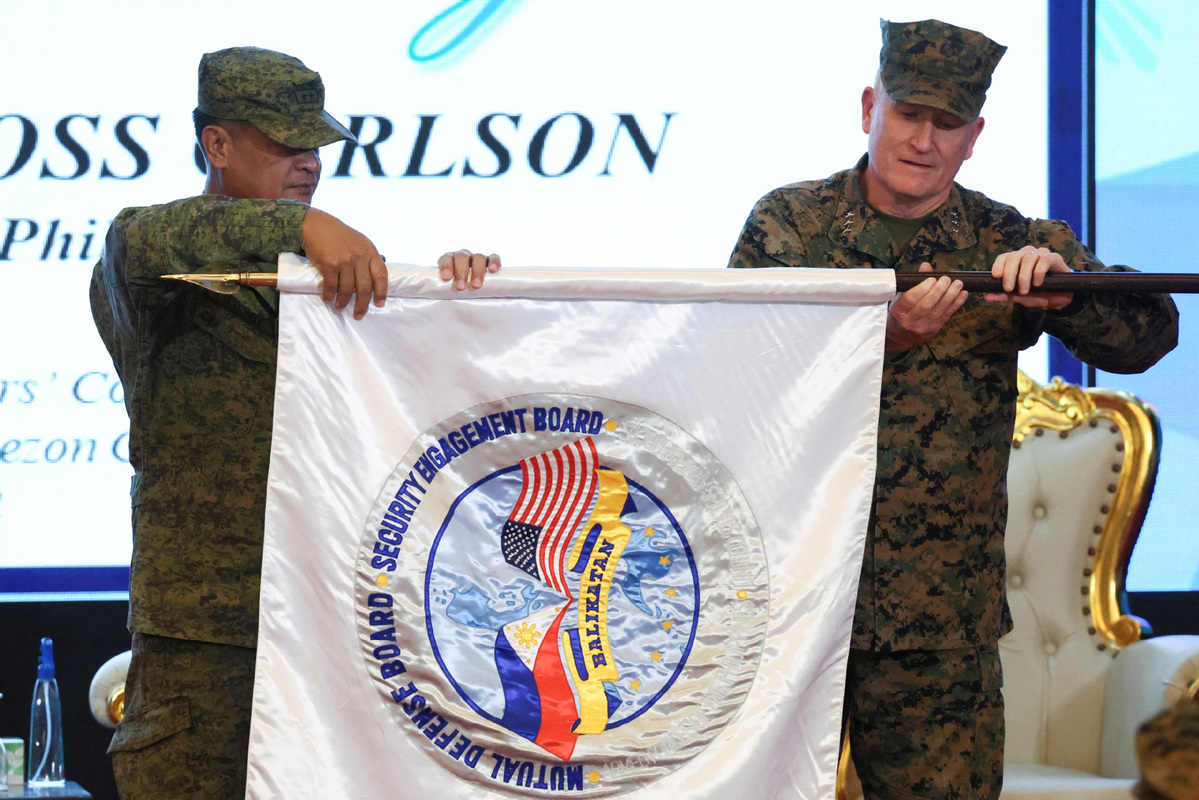Experts say deploying US medium-range ballistic missiles in the Philippines endangers Asia-Pacific
Xinhua | Updated: 2024-04-29 16:07

PHNOM PENH - The US deployment of medium-range ballistic missiles in the Philippines has posed a grave threat and danger to regional peace and stability, Cambodian scholars have cautioned.
The US Army Pacific announced earlier this month that the United States has deployed the Mid-Range Capability missile system, also known as Typhon, to Luzon, the Philippines, as part of their joint military exercise, which marks the first time that the country deployed a land-based, ground-launched system following its withdrawal from the Intermediate-Range Nuclear Forces Treaty in 2019.
UNDERMINING PEACE, STABILITY
Allowing the US army to deploy missiles in the Philippines posed a serious threat and danger to the peace and stability in the region, warned Joseph Matthews, a senior professor at the BELTEI International University in Phnom Penh, adding that it would not help resolve any regional dispute, but exacerbate the lingering tensions in the South China Sea.
Seun Sam, a policy analyst at the Royal Academy of Cambodia, said that the United States is rushing to interfere in the policy of the Association of Southeast Asian Nations (ASEAN) and its principle of non-interference.
"ASEAN Charter states that ASEAN countries will not allow the foreign military to base in each member state, but in this case, the United States and the Philippines are very wrong since they breach the ASEAN Charter for their own benefits," he told Xinhua.
He said that the United States only cares about its own geopolitical benefits regardless of the benefits of other countries. "ASEAN will continue to stay in fragile peace because the United States will use their military (power) to create problems in the region despite saying that they are in ASEAN to protect peace and stability."
Kin Phea, director general of the International Relations Institute of Cambodia, said that the Philippines has a "very short-sighted vision" as it closely engages with external countries like the United States and Japan.
If any military conflict happens, the Philippines will be in danger because the United States and Japan are far away from the South China Sea, he noted, adding that those countries and other Western nations are trying to muddy the waters in the region.
Thong Mengdavid, a lecturer at the Institute for International Studies and Public Policy, said joint exercises like "Balikatan 2024" serve as a means for the United States to mold the Philippines into a potential proxy in the event of conflicts with China.
DESTABILIZING ASIA-PACIFIC
Matthews said that the United States and Japan have been destabilizing the Asia-Pacific region by inciting the Philippines to continue provocations in the South China Sea.
"This tripartite defense cooperation and military exercise in the disputed waters have put the whole region in a war-like situation," he noted, adding that it will be counterproductive to the Philippines' economy and regional stability.
Mengdavid said the United States is attempting to influence countries bordering China, including the Philippines, to allow the establishment of US military bases within their borders and to enhance their military capabilities against China.
"This strategy not only enables the United States to position its military assets close to the Chinese territory, but also aims to exacerbate maritime disputes in the region," he said.
OUTSIDERS SHOULD BE OUTSIDE
To maintain peace and stability in the region, ASEAN countries must follow their charter and never allow extraterritorial countries to have a bigger say than any member country, Sam said, adding that when member countries have problems with each other, they should hold friendly discussions and never allow extraterritorial countries to interfere in their dialogues and communications.
"Face-to-face discussions and friendly talks with China are the best way to solve the problems in the South China Sea. All regional countries should ensure that they never use major-power countries to interfere in the region because actions of that kind will create more problems," Sam said.
























